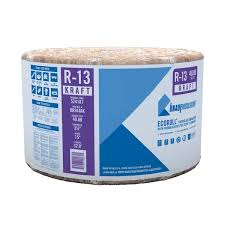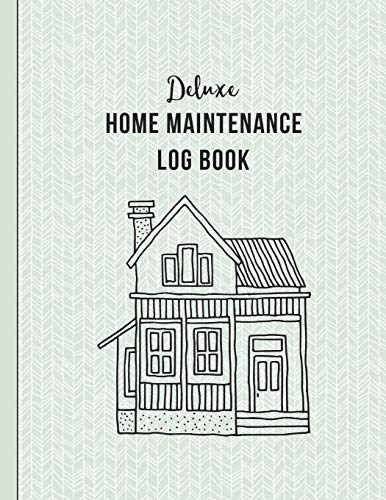Are you risking a fine with your home project? Expert contractors reveal how to check if you need a permit – plus 17 surprising upgrades that need permission
Contractors urge you not to make this dire misstep


It's easy to get swept up in the excitement of a home project, but before starting any construction, it's imperative to determine if you need a permit for any of the work. Failing to obtain the proper permissions can result in fines, project delays, or even the dire requirement to undo the completed work.
Here, our panel of professional contractors explain how to know if your project requires a permit, and reveal 17 common projects you need permission for. This will help ensure your work is compliant with vital building codes and avoid expensive renovation mistakes.
How to know if you need a permit for a home project

Caroline Grieco, principal architect at MAEVE Architecture explains, ‘Typically, any work other than 'repair' work requires a permit. Check your town's website for links to local code descriptions of 'ordinary maintenance'. When the project includes major alterations like removing or relocating walls, it's typically required for homeowners to hire an architect to evaluate the structure of the home and create a drawing to be included in the permit application.'
Working out if your home project needs a permit or not is a tip to consider before a remodel, and long before planning where to spend and where to save in a remodel. Without the right documents, your project should not go ahead and may work out to be costly and disappointing in the long run.
Caroline adds, ‘In many states, only licensed contractors can apply for permits, for example, only a licensed electrician can apply for an electrical permit. Local municipalities will require a fee for permits, but those fees are used to pay inspectors to review the contractor's work for code compliance. Permits are a necessary step to keep your home safe during and after construction.’

Sabrina Phillips, longtime contractor and owner of Designing Women of OC concurs, adding, ‘The rule of thumb is that if the work alters the structure, electrical, plumbing, or mechanical systems of a home, technically that would require a permit. If you're unsure, have a budget, and want to save time, hiring a professional is always the safest bet since they will handle any needed permits for you.'
Common projects that need a permit

Glenn Gault, CEO at Gault Heating & Cooling warns, ‘Most people don’t realize that even small changes – like adding attic insulation or replacing a gas line for a new stove – can require a permit. For example here in Ohio, where we are based, most projects on the outside of your home require a zoning certificate, even things like window and door replacement.’

Once you have the right permits to install insulation, you can get to work improving your energy efficiency. Knauf R-13 EcoRoll Kraft faced fiberglass insulation with ECOSE Technology is a leading sustainable insulation. It is validated by UL Environment as formaldehyde-free and contains no Red List chemicals.

This extruded polystyrene foam vent is designed to allow unrestricted airflow from the soffit to the ridge vent, which will help prevent damp and mold. This product works well for both new and retrofit construction projects.

If you are working with or near unsealed insulation, you should always wear the correct safety equipment such as a respirator mask, goggle, work gloves, and thick boots to protect your skin and airway.
The home renovation projects that require permits will vary massively depending on the state you live in. That being said, Gio Capolongo, homes expert and code violation remediator at Violation Clinic shares several common projects typically require approval across the country, some of which may surprise you:
- Window replacements
- Fence installations
- Replacing or building a deck
- Roof replacements
- Water heater installation
- Garage conversions
- Adding or moving electrical outlets
- Anything to do with retaining walls or load-bearing walls
- New driveways or expanding existing ones
- Basement finishing
- Demolitions
- Installing a shed or detached structures
- Solar panels
- Swimming pool ideas and hot tubs
- Egress window installation
Ryan Meagher, business development manager at BMV Contracting adds, ‘Adding plumbing fixtures is another common surprise for homeowners, especially if you are on a septic system, it is important to ensure that the septic system can support the additional plumbing fixtures. Additionally, whenever you complete electrical work it is always a good idea to pull an electrical permit and have the work completed and/or inspected by a master electrician.’
 Solid brass
Solid brass
Once you have the planning permission out of the way, you can start thinking about the fun little details and finishing touches, such as your bathroom plumbing finishes. This faucet comes with hot and cold supply lines and double handles.

It is never too early to start thinking about decor pieces. These counter trays keep soap dishes and bottles neatly organized to reduce visual clutter.

For a truly coherent bathroom project, swap out traditional soap dispensers for amber glass bottles. These come with labels so you do not mix up soaps and lotions.
When to apply for permits

To renovate a house successfully, Carr Lanphier, CEO of Improovy warns, ‘I would recommend applying for a permit well before you’re due to start work since any delays could impact your timeline and become problematic if you’re working with a contractor or trying to get a project done within a certain season or time frame.’
Most of the time, when working with a contractor, they will apply for and acquire the permits you need for you, taking some of the stress out of your pre-renovation checklist. To be sure, include permits on your list of questions to ask a contractor before hiring them. Carr continues, ‘I do think it doesn’t hurt to check this out yourself – I’ve heard some horror stories about homeowners working with less than reputable contractors and running into permit issues.’
When finding good contractors for your next project, their history with permits should play a key role in your decision making.

This logbook comes with 12 years worth of space to keep track of home maintenance, servicing information, insurance details, and DIY project checklists to make maintaining a household simpler.
Meet the experts

Caroline Maeve Grieco has over 13 years of professional architectural experience in New York and new Jersey, and is currently adjunct professor at Pratt Institute where she is currently teaching courses focused on design and integration of Building Information Modelling technology.
She is a registered architect and a LEED Accredited professional .

Sabrina Phillips, is a General Contractor, ASID Interior Designer, and a former Broker Realtor and Color forecaster for Sherwin Williams.
Sabrina originally started designing doctor's offices in 1986, then moved into residential design in 1991. To date, she has designed everything from kitchens to entire homes worth over $10 million.

Glenn Gault is the current custodian of Gault Heating & Cooling, a family-owned business established in 1955 by his father. He brings decades of HVAC experience to the table,
FAQs
Who is responsible for pulling permits?
In many states, it is a contractor's responsibility to acquire the correct permits for a project they have been hired to complete, with some states only giving permits to licensed professionals. That being said, it is vital as the homeowner that you check these permits to ensure everything is above board and ready to proceed before allowing workers into your home.
When sourcing quality contractors for your home projects, consider using a service such as Sears Homes Services, a platform to help you find the right workmen for the job, including appliance repair experts, HVAC professionals, and professional cleaners.
Can a contractor get in trouble for not pulling a permit?
Contractors can get in serious trouble for failing to acquire the necessary permits for a project, but they are not the only ones at risk. As the homeowner, you can also be fined for not checking for the correct documentation before the project begins. This also leaves you liable should anyone be injured during the project, too.
Sabrina Phillips, contractor, concludes, ‘The safety risks and potential fines from the city far outweigh the low cost of getting that permit. Additionally, If you ever try to sell your home, having unpermitted additions or major changes can affect appraisal values, scare off potential buyers, and potentially tank that highest and best offer from a buyer.’
Sign up to the Homes & Gardens newsletter
Design expertise in your inbox – from inspiring decorating ideas and beautiful celebrity homes to practical gardening advice and shopping round-ups.

Chiana has been at Homes & Gardens for two years and is our resident 'queen' of non-toxic living. She spends most of her time producing content for the Solved section of the website, helping readers get the most out of their homes through clever decluttering, cleaning, and tidying tips. She was named one of Fixr's top home improvement journalists in 2024.
You must confirm your public display name before commenting
Please logout and then login again, you will then be prompted to enter your display name.
-
 Is this the end of built-in bedroom furniture? Designers decide if this once-loved feature will in fact date your space
Is this the end of built-in bedroom furniture? Designers decide if this once-loved feature will in fact date your spaceWill we be saying goodbye to built-in wardrobes, shelves, and drawers this year? We spoke with interior designers to see if this classic carpentry style will continue to be featured in bedrooms
By Eleanor Richardson
-
 These are the worst houseplants for beginners – experts reveal 5 difficult plants to avoid, plus easy alternatives to choose instead
These are the worst houseplants for beginners – experts reveal 5 difficult plants to avoid, plus easy alternatives to choose insteadCaring for these houseplants successfully requires a lot of of TLC
By Tenielle Jordison
-
 The 3 bedroom renovations our home editors deeply regretted – and what they wish they’d done instead
The 3 bedroom renovations our home editors deeply regretted – and what they wish they’d done insteadSwap sorrow for success by avoiding what our editors learned the hard way
By Ottilie Blackhall
-
 How to prepare your house for extreme weather – 10 future-proofing home upgrades to help keep your family safe and well in an emergency
How to prepare your house for extreme weather – 10 future-proofing home upgrades to help keep your family safe and well in an emergencyBeing prepared is protective for your home's longevity, security and safety
By Chiana Dickson
-
 7 money-saving tips you need to know before renovating your home
7 money-saving tips you need to know before renovating your homeOur experts share their insider knowledge for keeping your renovation costs down
By Ottilie Blackhall
-
 Pros reveal how to make a DIY saw guide for perfect straight cuts on any home renovation project
Pros reveal how to make a DIY saw guide for perfect straight cuts on any home renovation projectSay goodbye to unwanted wonky cuts forever
By Steve Jenkins
-
 4-week countdown – If you're mid-renovation like me, here's how I make my messy house presentable for the festive season, starting now
4-week countdown – If you're mid-renovation like me, here's how I make my messy house presentable for the festive season, starting nowWho's to say Christmas can't feel special in a half-finished renovation?
By Amy Reeves
-
 Yes, this is the right time to renovate your kitchen before Christmas – 4 DIY projects you can complete in the next few weeks
Yes, this is the right time to renovate your kitchen before Christmas – 4 DIY projects you can complete in the next few weeksFind out what updates are possible before Turkey time
By Amy Reeves
-
 The 7 quick, inexpensive and transformative jobs I'm doing to spruce up my guest bathroom ahead of hosting season
The 7 quick, inexpensive and transformative jobs I'm doing to spruce up my guest bathroom ahead of hosting seasonI decided to give my guest bathroom a makeover ahead of the festivities
By Natasha Brinsmead
-
 5 ways to insulate a wall to lower your energy bills and block out noise – and which ones are a mistake to DIY
5 ways to insulate a wall to lower your energy bills and block out noise – and which ones are a mistake to DIYPros delve into the different types of wall insulation and ease of installation
By Steve Jenkins